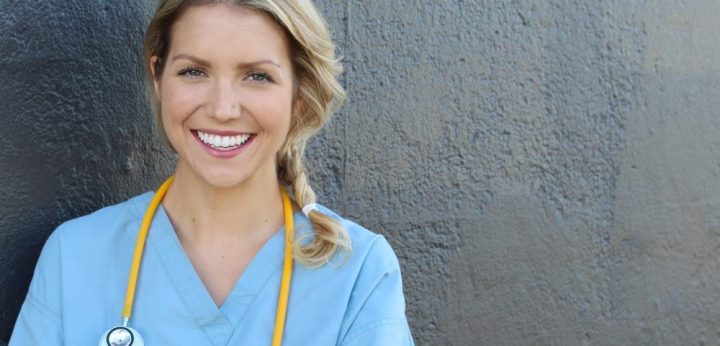Honoring the Nurses Who Have Taken Care of My Son During His PH Journey
Written by |

I recently read that the World Health Organization has declared 2020 as the Year of the Nurse and the Midwife.
In honor of the 200th anniversary of Florence Nightingale’s birth, I hope you feel inspired to unite with people around the globe by celebrating, thanking, and supporting nurses.
Nursing is an indispensable vocation that requires so much more from a person than a hard-earned degree and medical skills. These wonderful individuals exude compassion, are sturdy on their feet, have strong stomachs, and the patience of a saint.
They are the masters of diagnostic and assessment equipment, infusion pumps, and monitors. Carefully they help to coordinate care, administer medication, treat wounds, and handle bodily fluids without a hint of revulsion.
Whether it be stubborn veins or obstinate patients, nurses treat both with admirable patience, skill, and determination. They are also pillow-fluffers, water-fetchers, and soothing voices, keeping patients calm and comfortable. They care for patients in dimly lit rooms and gently take vitals without fully waking them.
Nurses are also educators who explain — in layman’s terms — conditions, tests, and procedures to patients and their families. They are counselors who listen to concerns and offer words of sympathy and positive reinforcement.
They also take care of parents and caregivers — in my case, reminding me to eat and rest. Nurses have helped to maneuver sleeper chairs and pullout beds and provided extra pillows to make me feel more comfortable. They have been my crutch, sounding board, and listening ear throughout my son’s battle with pulmonary hypertension and post-transplant experiences.
To my son, they have been his source of survival through clinic visits, emergency room trauma, hospital stays, and at home.
As I mentioned in a previous column, nurses have often made him feel better by administering the best medicine of all: laughter. I’ve witnessed bonds he has formed with several nurses over the years. Those who join in with his silly and sarcastic sense of humor provide more healing than they will ever know.
Some of these respected nurses have become friends, going out of their way to encourage him and visiting him when off duty.
One nurse rewarded my son with milkshakes whenever he braved the required brief walk around the nurse’s station. It takes skill to laugh and joke with a patient when they are mobile while remaining alert and ready to move to prevent them from hitting the ground if they pass out. This man was that type of nurse.
My son has been cared for by a few male nurses over the years. They have been a fantastic source of humor and camaraderie. It’s been wonderful to witness an increase in men going into the field of nursing — their contributions are much needed and appreciated.
Infusion and specialty nurses have also played a vital part in my son’s medical care, both pre- and post-transplant. I previously shared how an Accredo nurse helped us to advocate for my son each school year. When IV milrinone was added to his medical repertoire, managing both his central line and peripherally inserted central line would have been challenging without weekly visits from home-care nurses who provided exemplary care and invaluable reassurance.
Some have gone above and beyond the call of duty. One home-care nurse, seeing that I was struggling with the new challenges my son was facing, brightened my day with a gift of two hanging baskets for my porch. I will forever be touched by the memory of her kindness.
Finally, hats off to the unpaid caregivers — the parents, spouses, and others — who, without giving it a second thought, provide unconditional care to their loved ones. They are nurses by proxy, fueled by intuition, trained by personal experience, and paid in full by grateful hearts.
During this year of the nurse, give thanks. Nominate someone special for the Daisy Award. Donate in their name to their favorite organization or cause. Show your appreciation with cards, small gifts, or tasty treats that can be shared with their fellow nurses.
Don’t forget that nurses are humans, too. They have good and bad days, but they do the best they can. Recognize that they are sensitive to your heartache and rejoice in your triumphs. Show respect, even when you are feeling your worst, simply by remembering to say “please” and “thank you.”
In the words of Florence Nightingale, “Our first journey is to find that special place for us.”
Be thankful for the nurse who finds that special place with you.
***
Note: Pulmonary Hypertension News is strictly a news and information website about the disease. It does not provide medical advice, diagnosis, or treatment. This content is not intended to be a substitute for professional medical advice, diagnosis, or treatment. Always seek the advice of your physician or other qualified health provider with any questions you may have regarding a medical condition. Never disregard professional medical advice or delay in seeking it because of something you have read on this website. The opinions expressed in this column are not those of Pulmonary Hypertension News or its parent company, Bionews Services, and are intended to spark discussion about issues pertaining to pulmonary hypertension.




Debra
I live in Northern Va. Suffering from shortness of breath for years ( diagnosis sleep apnea) I continued to suffer from being breathless during exertion for around 10 yrs..after surgery this past Oct. My recovery nurses were concerned about my low blood oxygen levels..long story short they persisted the hospitalist see me and after seeing a Pulmonologist was diagnosed having PH at 67 yrs. old..God bless All Nurses!!